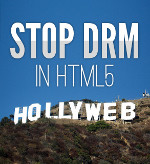Evidence continues to accumulate that the recent IAEA report is not a document of political substance nor scientific merit. The Real News interviews a former IAEA weapons program inspector, Robert Kelly. Kelly is currently a senior research fellow at the Stockholm International Peace Research Institute.
Edit: Part 2 of the above interview.
Tuesday, November 15, 2011
Wednesday, November 9, 2011
[Short entry] Joe Cirncione on the IAEA report on Al-Jazeera
Corroborating viewpoint (video) to that espoused here by Joe Cirncione of the Ploughshares Fund:
The hype about the latest IAEA report about Iran’s nuclear program was much more frightening than the actual content. Yesterday, Joseph Cirincione, the president of the Ploughshares Fund, an organization devoted to preventing the spread of nuclear weapons, informed a seemingly stunned Tony Birtley that most of what’s been revealed “is not new”.
[Short entry] IAEA report on Iran released; much more ado about not much
Politico's 'Morning Defense' daily email column reports today that:
Politico's "take":
The 2007 NIE certainly did call into question Iran's bomb program. But according to David Albright, speaking at The George Washington University October 7, 2011, Iran has likely enriched enough low-enriched uranium to allow them to make enough high-enriched uranium for at least one nuclear weapon upon further enrichment within the timescale of a couple to a few years.
But writing last year in Foreign Affairs, Lindsay and Takeyh, assure us that, 'Washington can contain and mitigate the consequences of Tehran's nuclear defiance, keeping an abhorrent outcome from becoming a catastrophic one.'
I think this is the right perspective. Nuclear weapons proliferation is abhorrent in any context, as is their very existence. The central issue being that in a post-nuclear-Iran world, they have an even less useful weapon than the U.S. or its allies possess: for Iran's use of such a weapon would be attributable and the response would be swift and apocalyptic for Iran's leadership and, unfortunately, its people.
IN ITS LONG-AWAITED REPORT, the International Atomic Energy Agency says it "has serious concerns regarding possible military dimensions to Iran's nuclear program. After assessing carefully and critically the extensive information available to it, the agency finds the information to be, overall, credible. The information indicates that Iran has carried out activities relevant to the development of a nuclear explosive device." The report released Tuesday is here: http://politi.co/tgsvX9
Politico's "take":
The IAEA's report is likely to put to rest doubts about Iran's intentions that have fueled debate in the United States since 2007, when a National Intelligence Estimate concluded that Tehran had abandoned efforts to build a nuclear bomb. Look for a new urgency to deal with the issue as world leaders take seriously the signals from Israel about a possible attack.
The 2007 NIE certainly did call into question Iran's bomb program. But according to David Albright, speaking at The George Washington University October 7, 2011, Iran has likely enriched enough low-enriched uranium to allow them to make enough high-enriched uranium for at least one nuclear weapon upon further enrichment within the timescale of a couple to a few years.
But writing last year in Foreign Affairs, Lindsay and Takeyh, assure us that, 'Washington can contain and mitigate the consequences of Tehran's nuclear defiance, keeping an abhorrent outcome from becoming a catastrophic one.'
I think this is the right perspective. Nuclear weapons proliferation is abhorrent in any context, as is their very existence. The central issue being that in a post-nuclear-Iran world, they have an even less useful weapon than the U.S. or its allies possess: for Iran's use of such a weapon would be attributable and the response would be swift and apocalyptic for Iran's leadership and, unfortunately, its people.
Subscribe to:
Comments (Atom)

